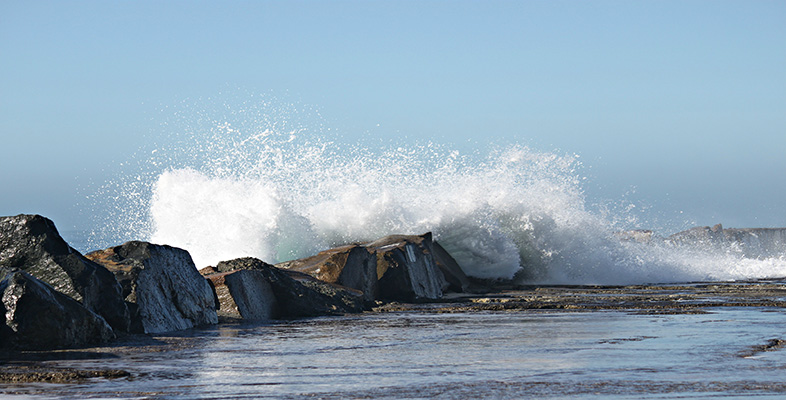1 Mapping geography
1.1 Chasms and great divides: can we imagine a world without geography?
Many school systems around the world do not have geography with the status of a separate subject. Schools in England and Wales are different. Here, geography is a national curriculum subject (5–14 years) and the former Minister for Schools (Stephen Twigg) has asserted the subject's importance in several speeches in 2004. For example, he says:
‘The unique contribution of geography is preparing young people to engage with the real world, to make judgements about events, to make responsible personal decisions and to understand the complicated interactions between places and people.’
(Twigg, 2004)
Click 'view document' to open and read all of Stephen Twigg's speech.
View document [Tip: hold Ctrl and click a link to open it in a new tab. (Hide tip)]
So, what is the power of school geography? This course is concerned with how geography is understood. What particular educational value does it have?
The subject of geography goes on developing and changing in the universities. In 1993, exactly one hundred years after the Geographical Association was set up to ‘further the study and teaching of geography’, Andrew Goudie declared there was a ‘chasm’ between university geography and school geography. Read his short article by clicking on the link below.
Click 'view document' to open the file in a new window
This was not to argue for schools following whatever direction universities choose to take. Far from it. But it was a call for different academic communities to stay connected. Without the wider discipline, school geography will lose its way (and vice versa?).
Goudie probably underestimated the extent of the additional pressures on teachers. For example, if we become too subject focused we may lose sight of the individual needs of children (and indeed, the ways schools serve wider societal goals).
Thus, the student voice is important and the subject can seem fragmented and distant.
See what one student, Jessica, had to say by clicking on 'view document' below.
Wider and deeper considerations are also important. In a significant article, Bill Marsden points out some of the dangers of teaching ‘for a good cause’ – such as citizenship or sustainable development. It is vital to maintain a clear distinction between propaganda and education, he argues, and rigorous disciplined enquiry is the best insurance that exists that we can avoid indoctrination.
Click 'view document' to read Bill Marsden's essay ‘On taking the geography out of geographical education’.
We could argue that it is for this reason that schools need subject specialists, so that what is taught and what is learned stays independent of central authority telling us what to teach (or how to teach it).
It follows from this that teachers need to be learners, and work hard at refining their specialist subject knowledge. Can ‘anyone’ really teach geography? I don't think so!
Follow up your thinking on these issues by doing the tasks in Activity 1.
Activity 1
Click 'view document' to read David Lambert on Mapping geography.
You can re-read Jessica's story by clicking on 'view document' below.
Click on 'view document' below to re-read Bill Marsden's essay.
The audio clip below contains a discussion on the teaching of geography in schools taken from BBC Radio 4's Today programme, 16 December 2002.
Transcript: Audio 1
These tasks can be done on your own, but they are best done in a group, if possible.
-
Draw your own ‘map’ of geography, referring to the resource on 'Mapping geography' above.
-
Do you consider there to be a ‘chasm’ between geography as a discipline and the teaching of geography in school?
-
What is your initial reaction to:
-
the Today programme question? ‘Does the teaching of geography matter anymore?’ (Listen to the interview by clicking on the link above.)
-
Charles Gritzner's question, ‘Can “anyone” (really) teach geography?’
-
Jessica's story.
-
-
In what ways can teaching geography become propaganda? Think back to Bill Marsden's article called ‘On taking the geography out of geographical education’.
